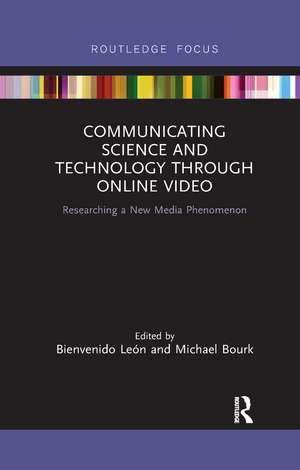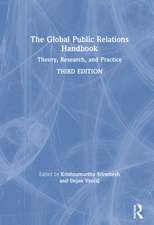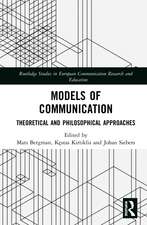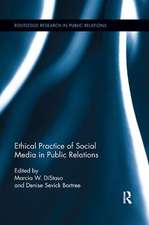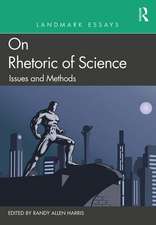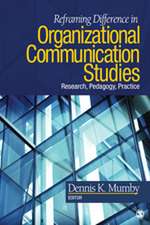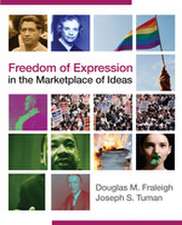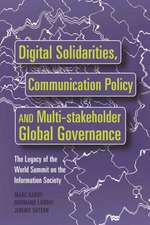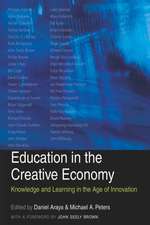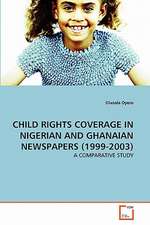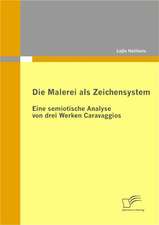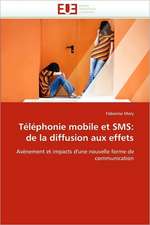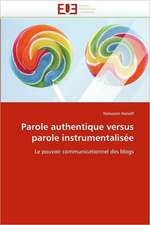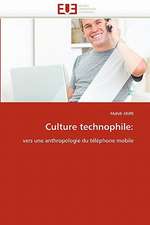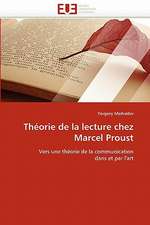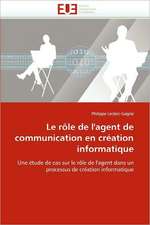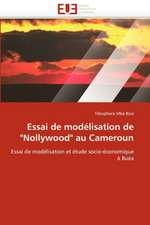Communicating Science and Technology Through Online Video: Researching a New Media Phenomenon: Routledge Focus on Communication Studies
Editat de Bienvenido León, Michael Bourken Limba Engleză Paperback – 30 iun 2020
| Toate formatele și edițiile | Preț | Express |
|---|---|---|
| Paperback (1) | 136.98 lei 6-8 săpt. | |
| Taylor & Francis – 30 iun 2020 | 136.98 lei 6-8 săpt. | |
| Hardback (1) | 455.31 lei 6-8 săpt. | |
| Taylor & Francis – 26 mar 2018 | 455.31 lei 6-8 săpt. |
Preț: 136.98 lei
Preț vechi: 167.64 lei
-18% Nou
Puncte Express: 205
Preț estimativ în valută:
26.21€ • 27.44$ • 21.69£
26.21€ • 27.44$ • 21.69£
Carte tipărită la comandă
Livrare economică 05-19 aprilie
Preluare comenzi: 021 569.72.76
Specificații
ISBN-13: 9780367607166
ISBN-10: 0367607166
Pagini: 148
Dimensiuni: 138 x 216 mm
Greutate: 0.18 kg
Ediția:1
Editura: Taylor & Francis
Colecția Routledge
Seria Routledge Focus on Communication Studies
Locul publicării:Oxford, United Kingdom
ISBN-10: 0367607166
Pagini: 148
Dimensiuni: 138 x 216 mm
Greutate: 0.18 kg
Ediția:1
Editura: Taylor & Francis
Colecția Routledge
Seria Routledge Focus on Communication Studies
Locul publicării:Oxford, United Kingdom
Public țintă
Postgraduate and UndergraduateCuprins
1. Investigating Science-Related Online Video (Bienvenido León and Michael Bourk) 2. An Overview of Science Online Video: Designing a Classification of Formats (José Alberto García-Avilés and Alicia de Lara) 3. Producing Science Online Video (María Carmen Erviti) 4. When Science Becomes Controversial (María Carmen Erviti, José Azevedo and Mónica Codina) 5. New and Old Narratives: Changing Narratives of Science Documentary in the Digital Environment (Lloyd S. Davis and Bienvenido León) 6. Rigour in Online Science Videos: An Initial Approach (Miquel Francés and Àlvar Peris) 7. Audiovisual Formats and Content in University Corporate Communication: Lost Branding Opportunities? (Joan Enric Úbeda and Germán Llorca-Abad) 8. Entertainment in Science: Useful in Small Doses (Michael Bourk, Bienvenido León and Lloyd S. Davis) 9. Framing in Climate Change Videos (Bienvenido León, Maxwell Boykoff, Juhi Huda and Carmen Rodrigo) 10. Conclusion: Innovation and Future Challenges (Michael Bourk and Bienvenido León)
Notă biografică
Bienvenido León is Associate Professor of Science Journalism and Television Production at the University of Navarra, Spain, and has published over 60 peer-reviewed articles and 21 books as author or editor, including El medio ambiente en el nuevo universo audiovisual (UOC Editorial) and Science on Television: The Narrative of Scientific Documentary (Pantaneto Press).
Michael Bourk is Associate Professor of Mass Communication at the Gulf University for Science and Technology, Kuwait, and has published 17 peer-reviewed journal articles or contributions, several book chapters, and the book Universal Service? Telecommunications Policy in Australia and People with Disabilities (Tomw Communications).
Michael Bourk is Associate Professor of Mass Communication at the Gulf University for Science and Technology, Kuwait, and has published 17 peer-reviewed journal articles or contributions, several book chapters, and the book Universal Service? Telecommunications Policy in Australia and People with Disabilities (Tomw Communications).
Recenzii
A timely arrival in the academic literature on science communication through online video, this book reports on the results of a major international project that has explored in depth this emerging field of research. The studies analyze different aspects and elements that are crucial to anyone intending to enter the world of online science video communication, and to understand the ways in which the viewers utilize the information. -- Erik Stengler and Hannah Sherman, Journal of Science Communication
Descriere
This book provides a unique insight into the key elements of online science videos, such as narrative trends, production characteristics, and issues of scientific rigor.
